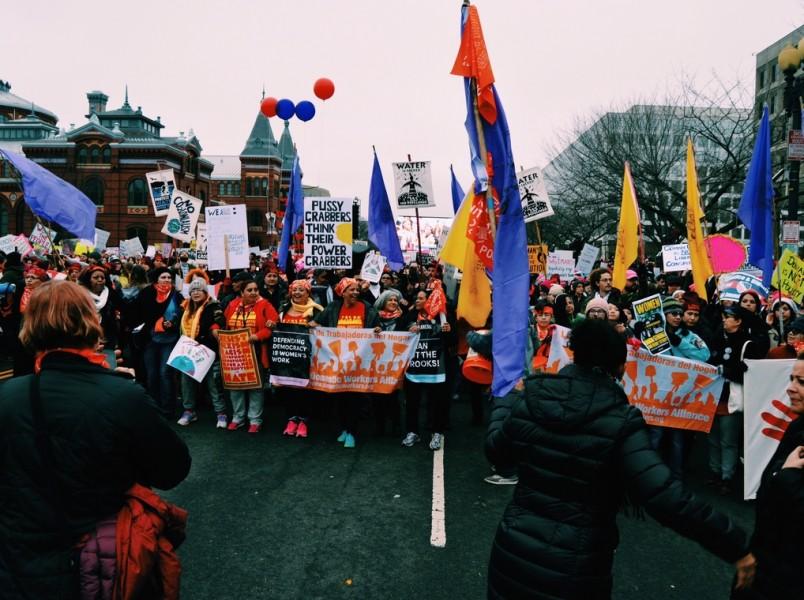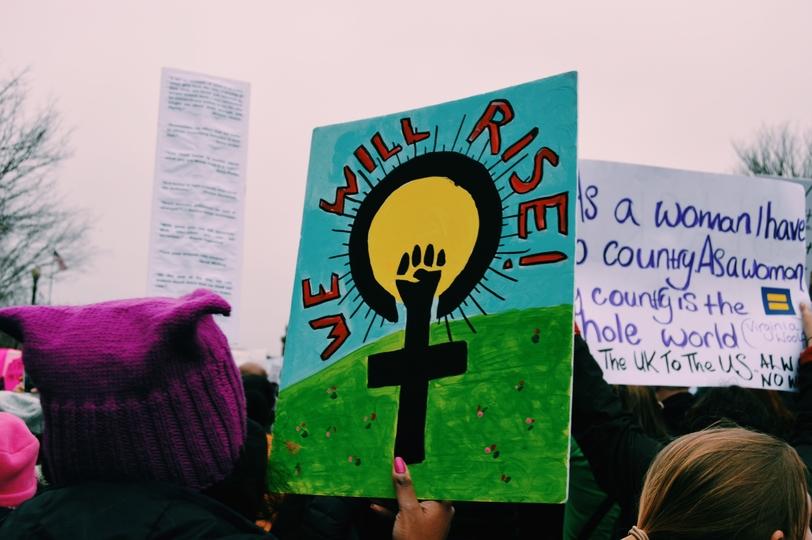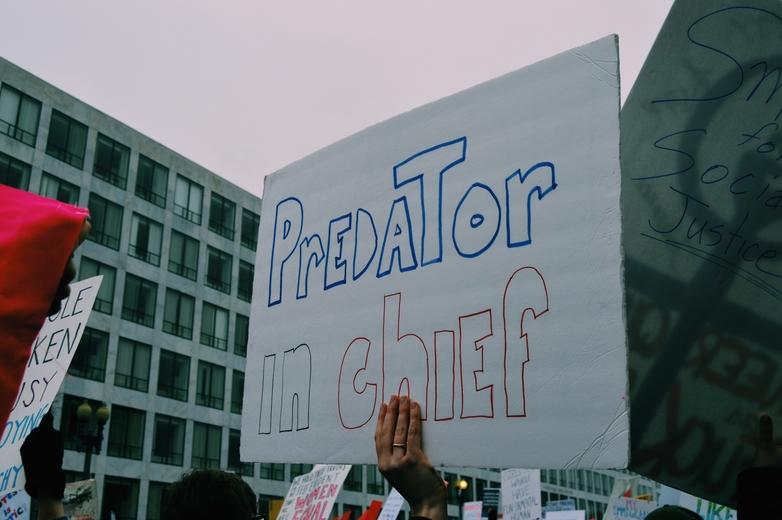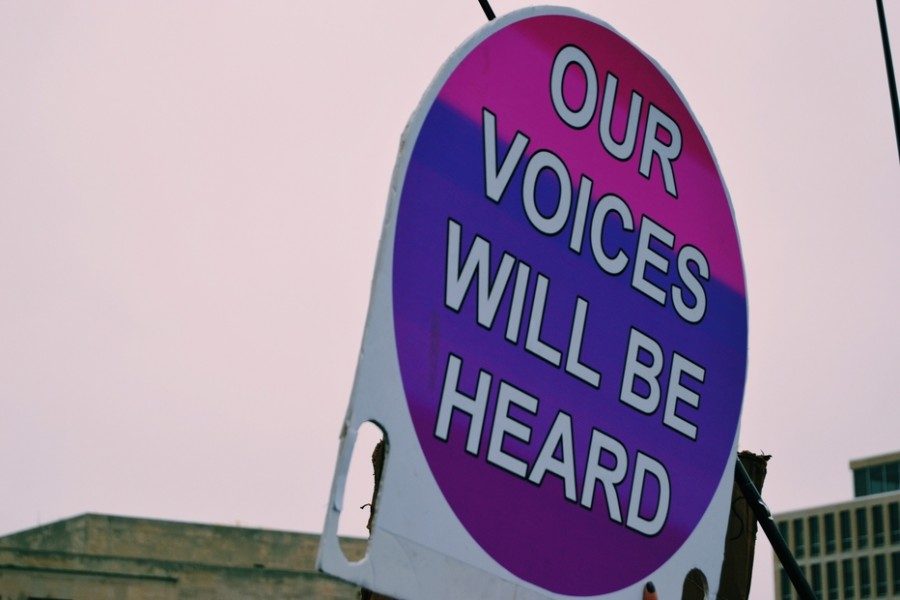Your donation will support the student journalists of Tulane University. Your contribution will allow us to purchase equipment and cover our annual website hosting costs.
The Women’s March on Washington: An intersectional perspective
From the eyes and hearts of two Tulane students
January 28, 2017
Friday afternoon, 56 Tulane students boarded a bus bound for Washington, DC. They joined a group of three million marchers around the globe in what was coined the Women’s March.
“We stand together in solidarity with our partners and children for the protection of our rights, our safety, our health, and our families,” the organization’s website said.
Below, two Tulane women each give their account of the march, what it means to them and what they expect it to mean to the movement as a whole.
Leave a Comment
Lauren, 18, cisgender woman, black:
Upon registering for the Women’s March on Washington, I joined this movement with numerous reservations. The biggest concern I had was that this march was not going to address the struggles and harsh realities of women of color as the pertinent issues they are.
As a black woman, I signed up halfway expecting—as per usual—to be one of the few people who looked like me and halfway excited to be a voice to speak up on the issues that all black women and other women of color are facing every day.
Another concerning matter was that D.C. was experiencing volatile situations following the inauguration. Needless to say, I was terrified, but I still felt that I had a purpose for going to this march and I wasn’t going to let prejudice stop me.
When I arrived at Reily Student Recreation Center to leave, however, I realized that I was among friends and a community who were there to support me. I was pleasantly surprised when I was able to have conversations on the bus about Black Lives Matter with people who understood the purpose of the movement, discuss the inauguration that happened the day before and become empowered after hearing stories from girls from different races, sexual orientations and home states about why they decided to march.
Albeit slowly, I let my guard down and allowed myself to form bonds and camaraderie with these incredible people I had met.
Getting into Washington D.C. was no different. I speak in complete honesty when I say that I have never seen so many people of different races, genders, sexual orientations, religions or personal identities getting along so seamlessly. Holding doors for one another, making space on immensely overcrowded trains, allowing others to pass along the streets and sidewalks and not allowing the hateful comments of those against the march to phase or divide them. I know that many might say people should not be applauded for exercising common courtesy, but given the political and social climate of this country, I was incredibly moved.
During the program and march themselves, I saw women from all aspects of life from the president of Planned Parenthood to U.S. congresswomen to celebrities like Scarlett Johansson and Janelle Monae all proclaiming intersectionality and acknowledging the rights of all woman, trans, women of color, poor and otherwise marginalized, needed to be acknowledged in the movement.
While my personal experience at the march was better than I predicted, I fully acknowledge that this march has issues to resolve going forward.
First, given the history of segregation and exclusion in marches like this, it’s understandable why people of color feel like they aren’t welcome. While this event proved to be very inclusive, I think in the future it needs to be better advertised that people of color are welcome and valued.
Second, many felt that the “pussyhats” worn in support of the march, which were not produced or marketed by the organizers, suggested not only that genitals equate to gender identity but also that the march was excluding the rights and struggles of transgender individuals, which was most certainly not the intention nor the reality of the march itself.
Leave a Comment
Ella, 18, cisgender woman, white:
I am an 18-year-old, incredibly privileged, white woman. I attend a school that has more students from the top one percent of the income scale than the bottom 60. I have never felt personally or individually discriminated against for being a woman, other than the occasional catcall and unwelcome bar grope.
I do, however, recognize that our patriarchal society systematically works against me and those who identify with my gender. I also recognize and feel that it is my responsibility to work towards ensuring that every other woman on this earth is afforded the privileges that I have and that we all have a right to.
I came into feminism admiring “the greats”: Mary Wollstonecraft, Alice Paul, Elizabeth Stanton, Susan B. Anthony, Simone de Beauvoir. These women were, in many ways just that—great. They vindicated our rights, validated our identities and were subjected to persecution and brutalization in pursuit of our ability to participate in the democracy of which we are citizens.
They were not, however, flawless. They left people out and allowed people to be marginalized in a fundamental and inadmissible way. First-, second- and third-wave feminism were all incredibly exclusionary of any non-white, non-cisgender person. Alice Paul even required black women to march in the back of her parades for voting rights, in fear of the withdrawal of southern feminist groups.
We are now moving into an era called fourth-wave feminism, and I feel that intersectionality will be the cornerstone of this new wave. I truly believe that last weekend’s march will be remembered as the first major demonstration in the fourth wave of feminism.
It certainly wasn’t perfect. There was a lot of division up to and after the march, and a lot of it was caused by my fellow cis, white women and their need to feel validated by a cause that they see as leaving them behind.
But the platform itself was written by a group of people who came from a wide range of gender and ethnic identities and was very inclusive, stressing the importance of intersectionality and support for those marginalized by the current political narrative. The march was incredibly peaceful and planned in cooperation with local law enforcement, a respect that was lacking and would have been appreciated at earlier Black Lives Matter protests. The march also seemed respectful of all identities, although severely lacking in general representation of some identities.
We have come a long way. We have a long way to go. Saturday’s march empowered me to be the kind of woman who stands up for women who aren’t afforded the same opportunities as I am. I will not accept the subjugation of my fellow human beings who identify as women. The march does not end here, and it does not end after the “10 things to do in the first 100 days.” I cannot wait to see what becomes of this movement.
So many women of color, transgender women, and other marginalized female activists have sacrificed so much in the pursuit of equality and intersectional feminism. We owe it to them to keep up that fight. I plan to spend the rest of my life as a politically active citizen, ensuring that when my daughters become feminists, instilling intersectionality won’t be necessary, intersectionality will be a fundamental, unquestionable part of identifying oneself as a feminist.
Leave a Comment
Conclusion:
Overall, events like the Women’s March on Washington prove that all voices still matter, concerns are still valid and that anyone can have an impact on the direction the global society is taking.
We are so ecstatic to have been given the opportunity to be a part of history together, and we are so ecstatic to be deeply aware that we are on the right side of history. There is still work to be done. Those of you who wish to stand with us, we welcome you. Those of you who continue to fight for what’s right, you inspire us. All of you, we love you.





Kathleen Pool • Jan 29, 2017 at 12:56 pm
You rock, Ella Helmuth.